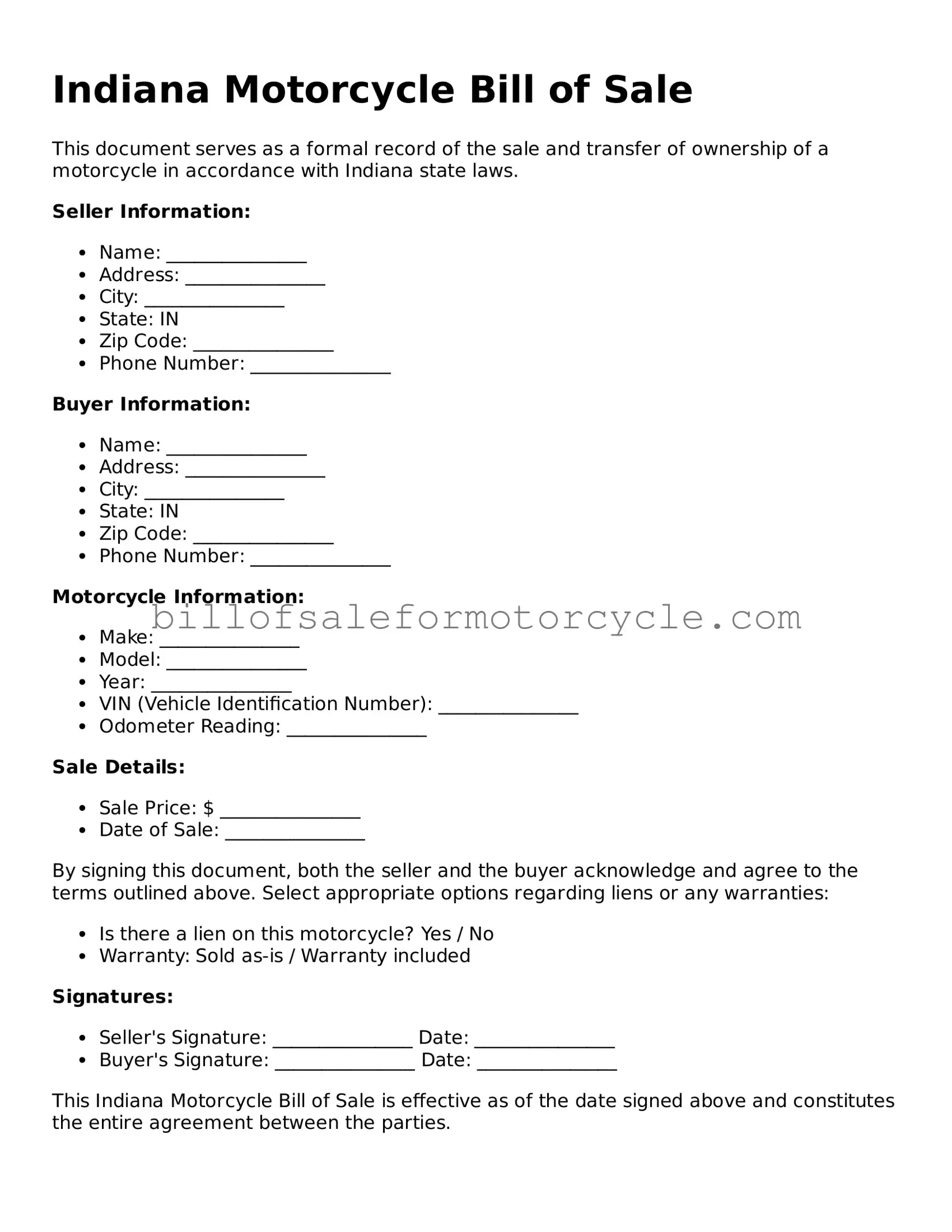Get Answers on Indiana Motorcycle Bill of Sale
-
What is the purpose of the Indiana Motorcycle Bill of Sale?
The Indiana Motorcycle Bill of Sale serves as a legal document that records the transfer of ownership of a motorcycle from one party to another. It provides essential details such as the names of the buyer and seller, the motorcycle's identification number (VIN), and the sale price. This document is crucial for both parties, as it protects their interests and serves as proof of the transaction.
-
What information is required on the Bill of Sale?
To ensure the Bill of Sale is valid, certain information must be included. This includes:
- The full names and addresses of both the buyer and seller.
- The motorcycle's make, model, year, and VIN.
- The sale price of the motorcycle.
- The date of the sale.
- Signatures of both parties.
Providing accurate information is essential to avoid any disputes in the future.
-
Do I need to have the Bill of Sale notarized?
In Indiana, notarization of the Motorcycle Bill of Sale is not required. However, having the document notarized can add an extra layer of authenticity and may be beneficial if any legal issues arise later. It is advisable to check with local authorities or the Department of Motor Vehicles (DMV) for any specific requirements.
-
How do I use the Bill of Sale for registration?
Once the Bill of Sale is completed and signed by both parties, the buyer can use it to register the motorcycle with the Indiana Bureau of Motor Vehicles (BMV). The buyer should bring the completed Bill of Sale, along with any other required documents such as proof of identity and payment for registration fees, to the BMV office. This document helps establish ownership and is often required for title transfer.
-
What should I do if the motorcycle has a lien?
If the motorcycle has an existing lien, it is important to address this before completing the sale. The seller should inform the buyer about the lien and ensure that it is paid off before the transfer of ownership. The Bill of Sale should reflect this situation, and the seller may need to provide documentation proving that the lien has been satisfied. Clear communication between both parties is essential to avoid complications.
